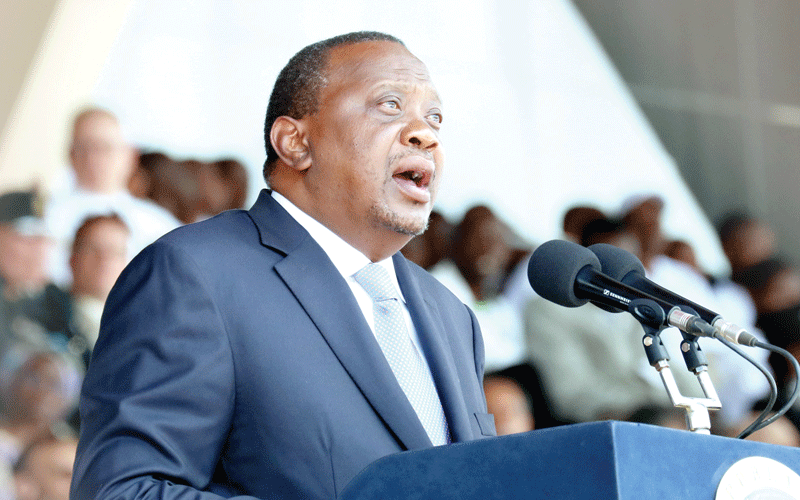President announces tax reforms to spur business
By Seth Onyango, December 13, 2019President Uhuru Kenyatta has announced sweeping new tax reforms to ease the burden on employers, offering relief to small businesses and seal revenue leakages to the exchequer.
In his Jamhuri Day speech, he directed the Kenya Revenue Authority (KRA) to introduce a unified tax system that effectively bundles all tax remittances and statutory deductions to the government.
He ordered a waiver of all court fees for commercial disputes of less than Sh1 million effective March 1, noting that up to 40 per cent of the value of commercial disputes for claims under Sh1 million are taken up as court fees and advocates charges.
“To accelerate economic transformation, my administration is focused on other salient factors that are holding back the potential of our enterprises; particularly with regard to taxes and tax administration, reduction or where possible elimination of fees or charges levied by government agencies as well as the private sector, reduction of bureaucracy and the simplification of processes in trade, access to credit and streamlining consumer protection assurance,” he said.
Small entities
“I order and direct that the National Treasury and KRA review our tax structures, especially in relation to small businesses, so as to reduce the tax burden while fostering tax-compliance.”
Under the consolidated regime, all employer deductions of National Social Security Fund (NSSF), National Hospital Insurance Fund (NHIF), PAYE and National Industrial Training Authority (NITA) will be collapsed into a unified payroll structure submitted to the taxman.
This is a departure from the current system where NHIF, NSSF and NITA remittances are done directly to the agencies.
Ernest Young Tax partner Francis Kamau said the move will also help the taxman nab cheats who have not been paying taxes despite making other contributions.
Terming the move timely, economist Samuel Nyandemo said it will be efficient and will help minimise revenue seepage.
“Once you consolidate as an employer you end up reducing the tax you pay,” he told Business Hub on phone.
Institute of Economic Affairs (IEA) had warned that the current tax structure is less buoyant and inelastic hence the reason KRA struggles to meet collection targets.
It also proposed a simplified system asserting the current structure is burdensome in terms of time taken to prepare and submit returns.
Debt hole
Kenya is under pressure to ramp up taxes as a means to get out of its debt hole.
In October, the International Monetary Fund (IMF) said as part of fiscal consolidation, it was realistic for the country to focus on mobilising taxes than cutting expenditure.
“Domestic revenue mobilisation is good for reducing the debt-to-Gross Domestic Product ratio,” said Abebe Aemro Selassie, the director of the African department at IMF.
KRA last year missed its tax collection target by around Sh100 billion, a situation that has seen it revise downward its revenue target for the current financial year.
In this fiscal year, KRA has been given a target of Sh1.8 trillion.
More Articles

